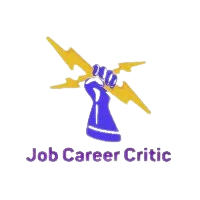The term “career cushioning” has been flying around for the past months, and people wonder what it means. However, the truth is this practice has been with us for quite some time, but its current popularity is fueled by the situation of the world’s economy as a whole.
Many employees use this practice when they notice potential problems with their current careers, and it helps them cope better when issues finally arrive. I would call it a very effective safety net for job loss. But what is career cushioning?
What Career Cushioning Means
Career cushioning means making a backup plan for yourself on what to do when something goes wrong with your current employment or career. Since you make this backup plan when you are still employed, it is easy to get another job or fall back on the backup for help when you get laid off or quit. It is that which breaks your fall in a career crisis.
You can cushion your career in different ways depending on why you are doing it in the first place. If you notice your current job is at stake because the employer is going bankrupt and may start laying off workers, it would be wise to start looking for a new similar job. This limits your career gap.
At the same time, your industry may be gradually becoming irrelevant as people rarely need your services. When this happens, it would be better to start cushioning your career by increasing your skill set. This way, you can easily turn to another industry if something finally happens.
It is more like a safe bet or an insurance policy against all calamities that could stand in your career progress, and it will help you thread safely and unscathed.
Should You Practice Career Cushioning?
Yes, it is a norm now, and I dare to say it is necessary if you want job security and financial freedom. With the current situation of the economy, nothing is quite sure, and you should definitely make a backup plan.
Many organizations are laying off employees no matter how good they are to reduce their cost of production and bag more profit. Eventually, your employer may lay off workers, and you could be affected. Cushioning your career right from this moment will help you prepare for what may come, and you will experience almost no period of unemployment.
Some industries are also finding other ways to handle basic activities outside the norm, pushing current professionals out of jobs. There are so many human activities that robots can do faster and cheaper now. If this happens in your industry, you need some insurance policy to handle the worst outcome.
Moreover, it is also possible you are not happy with the turn your career is taking. It is time to improve by considering a new role or changing your career. This will help you achieve fulfillment as you do things you love and find happiness.
How to Cushion Your Career
You can take many actions to ensure you have a safety net that will guarantee your financial freedom and build your career if there is ever a problem with your current employment.
Learn New Skills
The labor market is expanding, and there are many new and better ways to carry out daily tasks. Also, in the process of doing some tasks, people have devised more straightforward, efficient, and cost-effective methods. This makes the old ways of doing things very irrelevant, especially for someone looking for a career boost.
As a result, you should not limit yourself to your present or certain skills. Always try your best to improve on everything you do. If a new tool that helps to make your job easier is invented today, try to learn how to use it. Attend webinars and seminars that impart knowledge and take classes that can help your career. This way, when you have to take on a new role for a promotion or a better job opportunity, you can have a list of relevant skills in your resume to qualify.
It is also great to ensure your skills are not only centered on your present job, role, or industry. This way, changing to a new role, job, or industry becomes quite easy, and you don’t end up without a job during the transition.
Follow the Trend in Your Industry
Always stay up to date about the activities going on in your present industry. Whether you are a full-time employee or a remote worker, follow the trend of the labor demand for your main skills from time to time. The instability of the economy and the advancement of technology destabilizes the demand for many skills and industry.
When this happens, some skills are demanded more while some experience a decrease in demand. If the trend shows that your industry is affected badly, it is time to start learning a new skill with high demand. Cushioning your career this way makes you relevant in more than one industry, and if you are a remote worker, you can do them simultaneously while treating the new skill as a side job.
Seek Better Opportunities
Never limit yourself to a particular role. As you gain more experience and achieve more in your career, you should always seek more rewards or wages for your worth. If there are no indications of a wage raise in your present and you are thinking of quitting, secure a better job first.
Doing this will prevent you from staying unemployed after quitting your job. However, while you are still searching for a job, do not alert your employer or coworkers and quiet-quit safely.
Present Yourself for Other Roles in Your Current Place of Work
Another way of practicing career cushioning is informing your current employer of other skills you have and the services you can render them. This helps you stay employed, especially when you are employed on a per-project basis and your contract is nearing its end. This method works better if you have already implemented the first method, learning new skills.
Conclusion on Career Cushioning
Career cushioning is the best thing you can do now to ensure your job security and financial success to escape experiencing too grave effects of a career crisis.
This insurance policy helps you to stay employed, and we advise you to take action now to secure your future!



